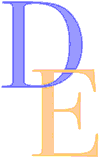Documentary Editing, Association for

Documentary Editing: Journal of the Association for Documentary Editing (1979–2011)
Date of this Version
Fall 2005
Document Type
Article
Citation
Documentary Editing, Volume 27, Number 3, Fall 2005. ISSN 0196-7134
Abstract
Military historians are not usually accused of worrying about trendiness. More typically they seem like stodgy traditionalists, scoffing at postmodernism and its various spin-offs and fantasizing about putting Foucault in the path of a cannonball at Gettysburg and shouting, "Deconstruct this!" At academic conferences and in university departments, military historians are outsiders: stubbornly following tales of great battles and dead white males while their presumably more "relevant" colleagues don red berets and scribble manifestos in smoke-filled rooms. Documentary editors who work in military history are, if anything, doubly outsiders: fearing either to venture into social history, or to join traditional scholars in interpreting source material by writing articles and monographs.
Yet times are changing. Among military historians, one of the hottest topics nowadays is the "social history of warfare." This blanket term covers: studies of the behavior of men in battle; examinations of trends in wartime societies via statistics; research in newspapers, letters, and diaries on propaganda and popular perceptions, as well as feisty postmodernist tracts that deconstruct warfare, "dismember the male," and tell us that World War II didn't really exist. Study of these topics has completely changed the way scholars understand the history of warfare. A further step in the transformation of military historical scholarship, the integration of documentary editing into the mainstream scholarly endeavor, will come when documentary editors wake up to realize that they are not just "blue-collar academics"-a term that makes them seem like glorified office drones-but historians too. With that realization will come the understanding that they are historians with especially valuable training and tools of a sort that qualify them to understand and explain their topics better than many other scholars.
Included in
Digital Humanities Commons, Other Arts and Humanities Commons, Reading and Language Commons, Technical and Professional Writing Commons


Comments
2005 © the Association for Documentary Editing. Used by permission.